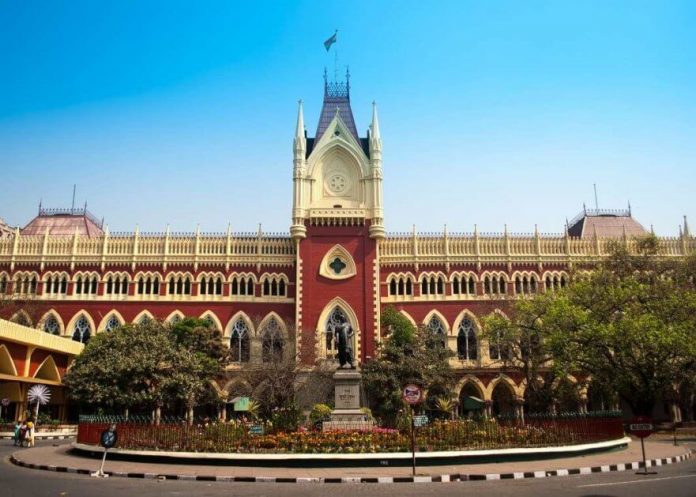This article is written by Shoronya Banerjee, from Amity University, Kolkata.
Table of Contents
Introduction
Judicial service is one of the fields that is largely pursued by many law graduates in order to work for the Indian judiciary. For this one has to appear for the Judicial Service Examinations that take place every year in different states across the nation. For the purpose of this examination candidates suitable to serve as a judge in the lower judiciary of our nation are selected. The judicial services witness innumerable candidates appearing for the examinations every year. To be a part of this competition and acquiring a successful position in the same requires planning, zeal, strategies, and a will to do something. Self-studying and coaching institutes do have a crucial role to play. The exam consists of three stages which are:
- Preliminary Examination
- Main Examination
- Personality Test
Eligibility criteria and age limit for appearing for the West Bengal judicial service examinations
- The aspirant should be a citizen of India or of another nationality as declared eligible by the Government of India.
- The lower age limit for candidates is 23 years with the maximum limit being 35 years.
- Usually, for the PWD candidates, there are 10 years of age relaxation whose permanent disability is not less than 40%. The prescribed upper age limit as mentioned above shall be relaxable by 5 years for the SC/ST candidates, 3 years for the OBC candidates, and 2 years for the government service person candidates.
- The candidate should possess a degree in law from any University or Institution affiliated to any University recognized by the State Government or the Central Government.
- The individual must be enrolled as an advocate in the Bar Council of any State or Union Territory in India on the date of advertisement for the examination.
- The aspirant must have the ability to read, write and speak in Bengali (not required for those candidates whose mother tongue is Nepali).
Pattern of the West Bengal judicial services exam
The West Bengal Judicial Service Examination takes place in three stages which are:
-
Prelims exam pattern
The preliminary examination is mainly objective in nature consisting of 200 questions of multiple choice and 200 marks. A freshly graduate of law can find preparing for this paper relatable and easy as it consists of the basic concepts that one law graduate is expected to be aware of. Along with basic statutes, the general knowledge on varieties of other subjects is tested as well. A decent level of preparation with clear ideas about legal subjects is needed for successfully qualifying for this examination.
-
Mains exam Pattern
The final examination tests the in-depth knowledge of subjects in the aspiring candidates. The exam has optional and compulsory papers with 100 marks allotted to each. As per the observed pattern, a lot of subjects turn out to be common between the two exam levels making it easier for the candidates to plan a schedule and inculcate a method of studying for covering the syllabus successfully.
-
Personality test
The third stage of this exam, the personality test examines the communication skills of the candidates. Good and polished communication skills and confidence are the important requirements of this stage. Marks of the preliminary exam plays an essential role as that paves the way for a candidate to reach the final step of the examinations. A candidate’s strategy must incorporate plans of approaching the studies in a subjective way and also the communication skills required for the verbal rounds. Current affairs, basic concepts of law, recent judgments and so on are quite important for this round.
Syllabus
- The Prelims paper with 200 marks allotted to it consists of questions on the basic statutes that are taught in law schools such as the Constitution of India, Law of Contracts, Law of Torts, Evidence Act, Civil Procedure Code, Criminal Procedure Code, Indian Penal Code, Personal law, Law of Limitation, English composition, current affairs, reasoning, and general knowledge.
- The main examination incorporates compulsory and optional papers out of which usually 8 are compulsory and 3 are optional.
- Each paper consists of 100 marks.
- The syllabus which is liable to alteration is given below:
-
Compulsory papers
- English Composition, essay, précis writing;
- Bengali/Hindi/Urdu/Nepali/Santali composition, essay, and translation from English into Bengali/Hindi/Urdu /Nepali/Santali;
- General Knowledge and Current Affairs;
- Civil procedure Code;
- Criminal Procedure Code and Indian Penal Code;
- Indian Evidence Act;
- Law of Contracts and Torts; and
- Transfer of Property Act.
-
Optional papers (any three)
- Hindu Law;
- Muhammadan Law;
- Jurisprudence and principles of legislation;
- Indian Law relating to Companies and Insurance;
- Principles of Equity including the Law of Trusts and Specific Relief;
- Partnership Act;
- Law of Limitation and Law of Prescription;
- The Indian Constitution and Constitutional Law.
Registration/ filing of application form
- The candidates will have to first register themselves online.
- After successful registration, registration no. and a password will be generated.
- Log in with that registration no. and a password.
- Complete the application form by providing the details.
- Upload your photograph and signature.
- Pay the application fee online or offline.
- Finally, submit the application form.
- Take a print out of the application form for future purposes.
Important dates
The online submission of forms had on from July to August 2020. With the prelims having been already conducted as per the notifications, candidates must keep a close and daily check on their official websites for staying updated. For further details one can refer to:
Books to refer
There are several books to follow for the examination, but one must include choosing proper books within their preparation strategy as well since one must be sure of what type of books they are comfortable with. Some suggestions for books to be referred to:
- West Bengal PSC Judicial Services Pre. Exam: Dr. Lal and Mishra
- Universal’s Guide to Judicial Services Examination: LexisNexis
- West Bengal Judicial Services (Preliminary) Examination–The Complete Preparation Manual: Showick Thorpe
Tips for qualifying in the judicial service examination
When talking about strategizing to study for competitive examinations, planning is quite specific to the kind and nature of the examination and also how a candidate really wants to prepare for it. Every aspirant has its own ways of studying and staying motivated. Provided below are some tips that every candidate can follow to qualifying for the judicial services examinations:
Practice makes perfect
Any competitive examination requires candidates to be aware and habituated with the pattern of the examination that they are about to appear for. Judicial service examinations have different syllabus and patterns for every state. Therefore, this makes practicing previous years’ papers very crucial. This teaches one the art of self-assessing, time-management, and so on. Certain times questions can be repeated as well. Also, often while practicing when one individual rectifies his/her mistake that individual abstains from repeating it on the final day.
Importance of proper guidance
Strategizing and studying hard is essential but so is the need for motivation and guidance. Proper guidance can help the candidates clear their doubts, and also be sure of working and functioning on the correct track. Guidance from a coaching institute, judicial officer, or a successful candidate who had already appeared for the exam can be proven to be extremely fruitful. Strategies shared by them can motivate individuals and also help them formulate new schedules on that basis.
Being consistent
There is no alternative to being consistent, studying carefully, revising, and attempting mock tests. Periodical revisions can prove to be extremely helpful in retaining the topic. One has to practice writing long answers and also refer to past year question papers. Reading daily and keeping oneself aware of current affairs and judgments is very crucial.
Having an aim
Securing a place in the Indian Judiciary through cracking the Judicial Services is a matter of pride. These examinations are held by several states across the nation. One should have the will and aim to sit for such an exam as preparing for it is quite tough and breathtaking. The sheer aim to crack the exam can be quite helpful for attaining 100% accuracy, as that individual wants to succeed anyhow and is aware of how to avoid mistakes. Before building a strategy, one has to have a proper aim of successfully cracking the examinations.
These are some of the tips which any candidate appearing for West Bengal Judicial services can adopt to successfully crack the judicial service examinations.
Conclusion
Getting selected through the judicial service examination and being a part of the judiciary gives one the opportunity of serving the interests of the people and making society a better place to live in. Every West Bengal Judicial Service Examinations candidate must keep a close check of the official website which has been provided above. Here’s wishing all the candidates, good luck!
References
- https://testbook.com/west-bengal-judicial-service/eligibility-criteria
- http://pscwbapplication.in/pdf19/SCHEME_AND_SYLLABUS_OF_WEST_BENGAL_JUDICIAL_SERVICE_EXAMINATION_%202019.pdf
- https://news.careers360.com/west-bengal-judicial-service-exam-2020-application-released-apply-online-here
- https://www.hindustantimes.com/education/west-bengal-judicial-service-admit-card-2020-to-be-released-soon-at-wbpsc-gov-in-here-s-how-to-download/story-yhw1SPW6MiycECQuzs9QnN.html
- https://www.delhilawacademy.com/west-bengal-judicial-service-study-material/
LawSikho has created a telegram group for exchanging legal knowledge, referrals and various opportunities. You can click on this link and join:
 Serato DJ Crack 2025Serato DJ PRO Crack
Serato DJ Crack 2025Serato DJ PRO Crack











 Allow notifications
Allow notifications


